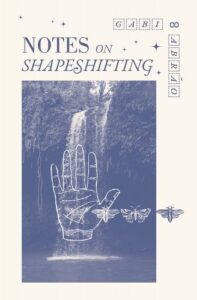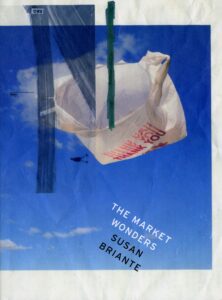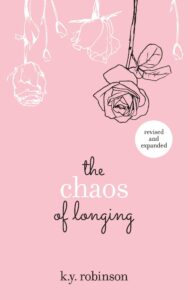Poetry Collections to Read If You Love Succession
Succession is nearing the end of its fourth and final season, with every episode inspiring a flurry of think pieces, podcast recaps, and live tweets. The show has become a fan-favorite—it’s estimated that 7 million viewers regularly tune in. While the controversial and embattled Roy siblings may embody a lifestyle unrecognizable to a general audience, universal themes underlie the sweeping shots of high-rises and private resorts. In each episode, fans eagerly untangle power dynamics and family drama, as well as watch the characters reckon with mental health, mortality, and addiction. If you can’t believe there is only one episode left of the series, add these collections to your TBR list and turn to your stack once the credits roll.
1. Notes on Shapeshifting by Gabi Abrāo

Influencers flutter in and out of the Succession landscape, a symbol of the old money and new money dichotomy and the changing role of media. In Notes on Shapeshifting, Gabi Abrão—who previously authored How to Have a Positive Experience on Instagram—contends with both the perks and pressures of the influencer economy. Many plotlines in Succession, most recently the Living+ initiative, can be seen as a critique of how wellness is commodified. Notes on Shapeshifting juxtaposes a sharp critique of this phenomenon with equal parts gentleness, exploring how wellness might be found outside of elitism and capitalism.
2. Market Wonders by Susan Briante

Among beloved characters like Kendall, Roman, and Shiv, it’s undeniable that in Succession, the market and economy itself stands in as a central character. Viewers witness frequent speeches about stock prices, revenue, and eye-popping deals. The market is a key motivator in nearly every decision and comes to have a looming, constant, and almost physical presence. In Market Wonders, Susan Briante employs this same personification, transforming the capital-M Market into a thinking, feeling person who loves, parents, and navigates relationships throughout their daily life.
3. The Chaos of Longing by K.Y. Robinson

Desire can be linked to nearly every character, plot line, and relationship in Succession—the characters desire power and money on the surface, and just beyond that they also yearn for love, acceptance, purpose, and belonging. At times, each character seems bottomless and insatiable. In The Chaos of Longing, K.Y. Robinson similarly defines longing as a constant force, and—as the title suggests—observes the chaos it can produce. Robinson examines how desire intersects with trauma, mental illness, and more, noting that who and what we desire is shaped in part by ourselves and in part by the world around us.
4. The Dream Songs by John Berryman

Each finale episode of Succession packs heavy emotion, suspense, and turbulent life changes for its characters, but the final episodes have more than just that in common: They also take their titles from the classic poem “Dream Song 29” by John Berryman. “All the bells say,” “This is not for tears,” and “Nobody is ever missing” are all phrases from the revered poem, part of a larger collection of “dream songs,” which Berryman wrote over a period of 13 years. The sprawling, free verse songs are all written from the perspective of a lonely, grieving, middle-aged character named Henry, of whom John Berryman has said: “Henry has a hard time. People don’t like him, and he doesn’t like himself.” This characterization might be the reason episode titles have been based on the Pulitzer Prize-winning poems, as they mirror Succession’s darkest themes of self-hatred and isolation.
5. Father’s Day by Matthew Zapruder

The entirety of Succession operates around patriarch Logan Roy—who he’ll choose to take over his company, who he trusts most, and who he invites and excludes from his inner circle. Even after his death, Logan plays a profound role and continues to influence each of his children. Father’s Day by Matthew Zapruder speaks to the long-lasting impact that fathers have in their kids’ lives. The collection follows the poet becoming a father for the first time and lingering in the complexities of the experience—with Zapruder calling parenthood a “painful joy.” Like Succession, the collection ties personal relationships to larger systems, with family life existing alongside political life and unfolding history. Zapruder writes about his own fatherhood, but also the founding fathers, reflecting on how the language and lineage of fatherhood has often been used to excuse violence and oppression.
Looking for more poetry recs based on your favorite shows? Check out our roundup of collections to read if you loved Wednesday on Netflix.




